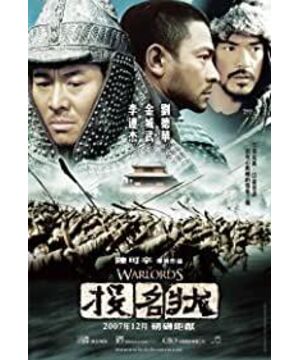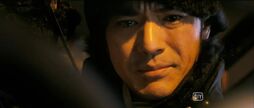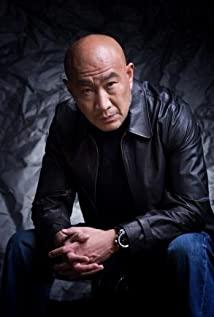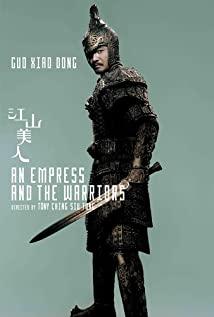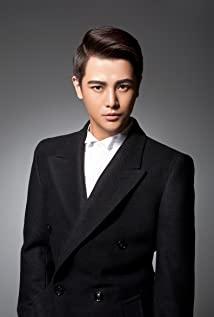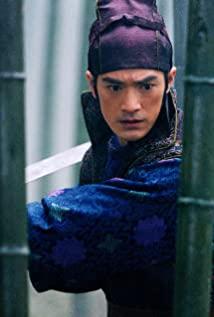/ Is the theme of Yu Ge
's "Putting in the Name" the brotherhood that the media talks about? From start to finish, all I see is irony and deconstruction of Brotherhood. For example, the naming behavior of the film "The Name of Acceptance" did not originate from a bond of mutual love between brothers, but a last resort for everyone: Pang Qingyun, a deserter from the Qing court, wanted to bring the strong men from the small village to serve the official army. Jumping out and questioning his selfishness, he chose to accept the name and become brothers, sharing life and death. This is equivalent to making a contract. The basic point is everyone’s psychology of seeking benefits and avoiding disadvantages. The content is to eat together with food, to make money together, and to share rights and interests equally. Unfortunately, it is not the law of a country governed by the rule of law that guarantees the validity of the contract. God and everyone's conscience, the latter is very variable, so the quality of the contract is not stable, and the disintegration has been buried from the time it was signed.
According to the information I have come into contact with, there are a lot of abridgements in the "Certificate of Voting" released in the mainland. Friends who have read "Water Margin" know that Lin Chong was forced to go to Liangshan, when Wang Lun was in power. He was afraid that Teacher Lin would usurp the party and seize power. The determination to not go back is for the "voting the name certificate" - it is said that it also has another meaning, that is, except for the life of the brother, everyone can be killed. This is the essence of the "voting the name certificate". In the original version, the three brothers killed an innocent person. The three had very different expressions. The eldest Pang Qingyun was sinister and vicious. This paragraph is quite critical, not only in explaining the origin of the "name-casting certificate", but also in indicating each person's character and future destiny through a sharp contrast.
This dissection is not to stab the mainland version of the wound - who made you unfortunate to be born in China; but to lead to my argument: even an innocent person can be killed, and who can't be killed? When killing is as simple as an arm and a finger, and killing no longer needs a bright and legitimate reason, can brotherhood still be a shield to stop the killing? Who can guarantee that the next point of the blade will not be the throat or heart of the righteous brother? The killer in "Full Time Killer" said to his girlfriend, I go out for a few minutes and come back after killing someone. This is an attitude towards life; in Akira Kurosawa and Hitchcock's movie, killing someone is so hard , it is so difficult that the audience can't bear to watch it. This is also an attitude towards life-to treat it like a piece of grass, or if it is a precious love, "Famous Name" is closer to the former. If the lives of others can be despised at will, why should the lives of brothers be cherished? Brotherly love, when it was stabbed with a knife in the beginning, it was destroyed.
The riddle of fate was planted so early, and the answer to the riddle was slowly presented later. Still killing, contingency, and cheating. In fact, Liansheng played by Xu Jinglei is the most pitiful, a victim of deconstruction of brotherhood. The third eldest Jiang Wuyang's feelings for this second sister-in-law are very intriguing. The last episode of him killing Liansheng reminds me of the classic episode of Wu Song killing Pan Jinlian. Where does the perverted hatred mixed with deep love come from? ? Brotherhood? Jiang Wuyang would not naively think that the three brothers would be able to reconcile as they were once they got rid of the troubles and misfortunes. Where did the "beginning" come from? I am afraid that Jiang Wuyang's dreamy "beginning" only exists in a beautiful oath? The killing of Liansheng will only widen the rift between the three brothers. If this is not the director's fault, then I would like to understand that the people in the play have already been formatted by killing, and their minds can't accommodate other operation buttons except killing or being killed.
Physical weapon, killing heart everywhere. Although the historical background of "Putting Names" is the Qing court in the nineteenth century, it can actually be summarized as the "state of nature" defined by Hobbes, which is the stage of war between all people and all people. The logic of power running here is very simple: to kill or be killed depends on whether you have a one-shot fatal weapon. You can imagine the shape of the "sharp weapon" at various levels, and in my opinion, the biggest weapon shown in "The Name" is power. Pang Qingyun has been selling his ideals to the two brothers, in the final analysis, the possession of power. How much power he has determines how much good he can do, how much to kill, and how much cheaper to kill these people. Not only him, but the ministers of the Qing court are also fighting for power. The old lady who is the most powerful person is also fighting for power. She is worried that Pang Qingyun, an outsider, is sitting in Jiangnan, so she puts a black gun behind her back - a natural state One of the origins of war is the struggle for power, the "big killer".
The end of the film can only exacerbate the dark tones of the natural state. "Anyone who uses a knife will die under the knife." All three brothers died: Zhao Erhu died from the poisonous hand of Pang Qingyun to maintain power, Pang Qingyun died from the sword light of Jiang Wuyang's vengeance and the musket of suspicion of those in power, Jiang Wuyang died from slaughter. The third child is the purest, practicing the maintenance of nihilistic brotherhood. The second child is the most tragic, his Guan Yun-style red-faced character is doomed to death without knowing why (including his wife being stolen by the elder brother), his eyes are confused, and he shouts "big brother" in his mouth - his loyal object, the person who ordered him to kill him (This kind of invisible weapon, like the "ideology" that modern political parties depend on for a living). The boss is the most hateful, because he is the chief director of the power struggle between the three brothers, and always holds a certain initiative. No matter whether it is a conspiracy or a conspiracy, he is the initiator. None of the three died well, and it's more likely the director's wishful thinking, because the lessons of history are far from being so impartial. However, after watching the movie, we at least know a simple truth, that is, brotherhood, comradeship, and comrades-in-arms must not be used as laws to restrain the hands and feet of those in power.
View more about The Warlords reviews


